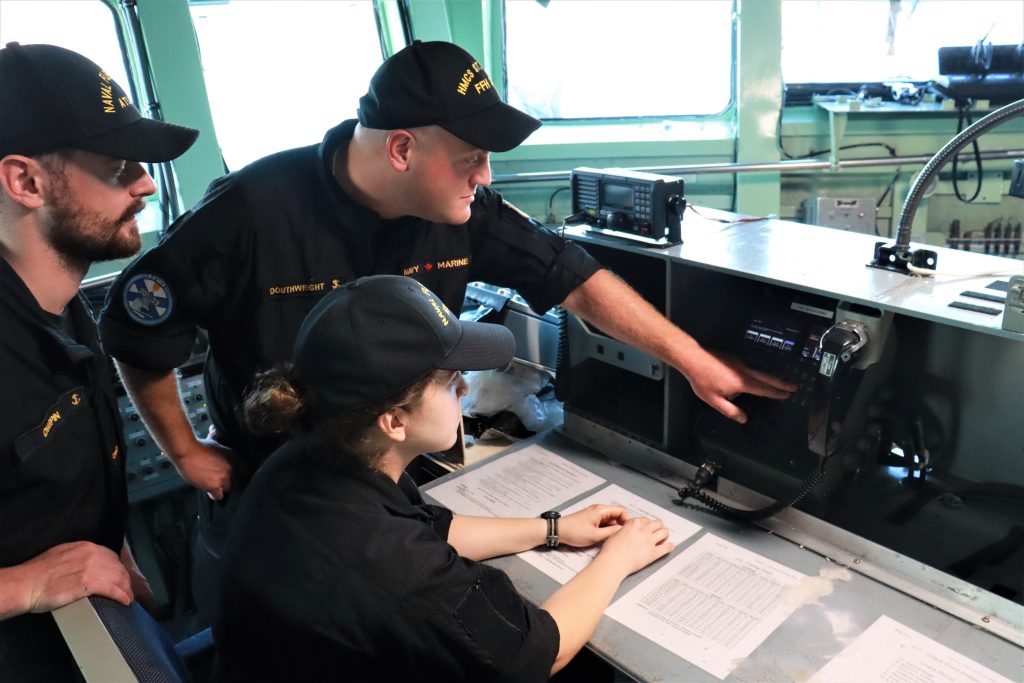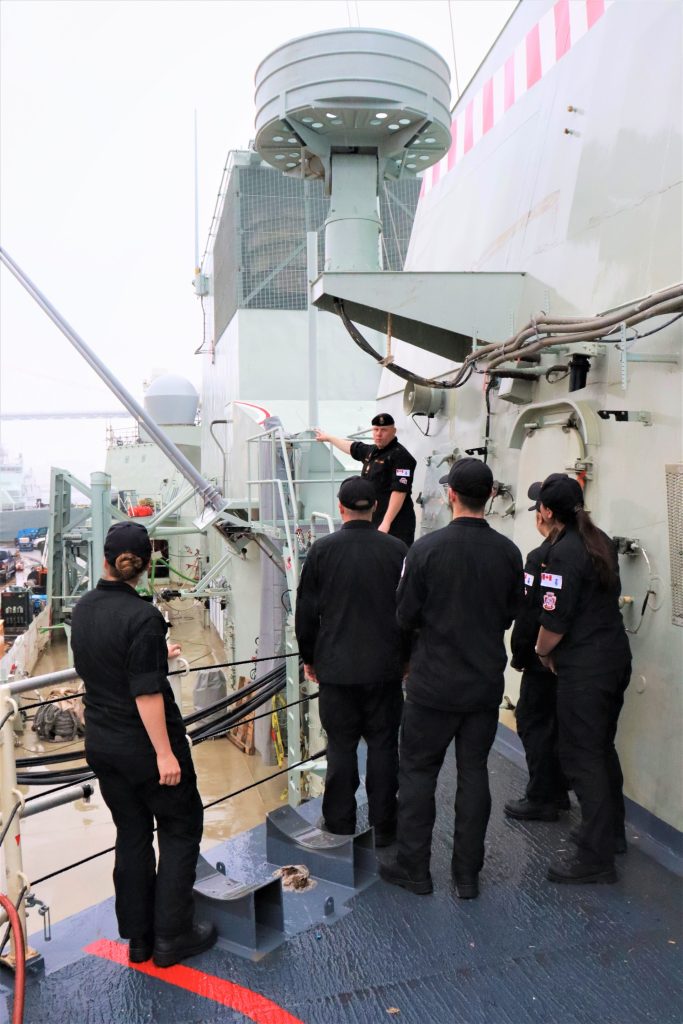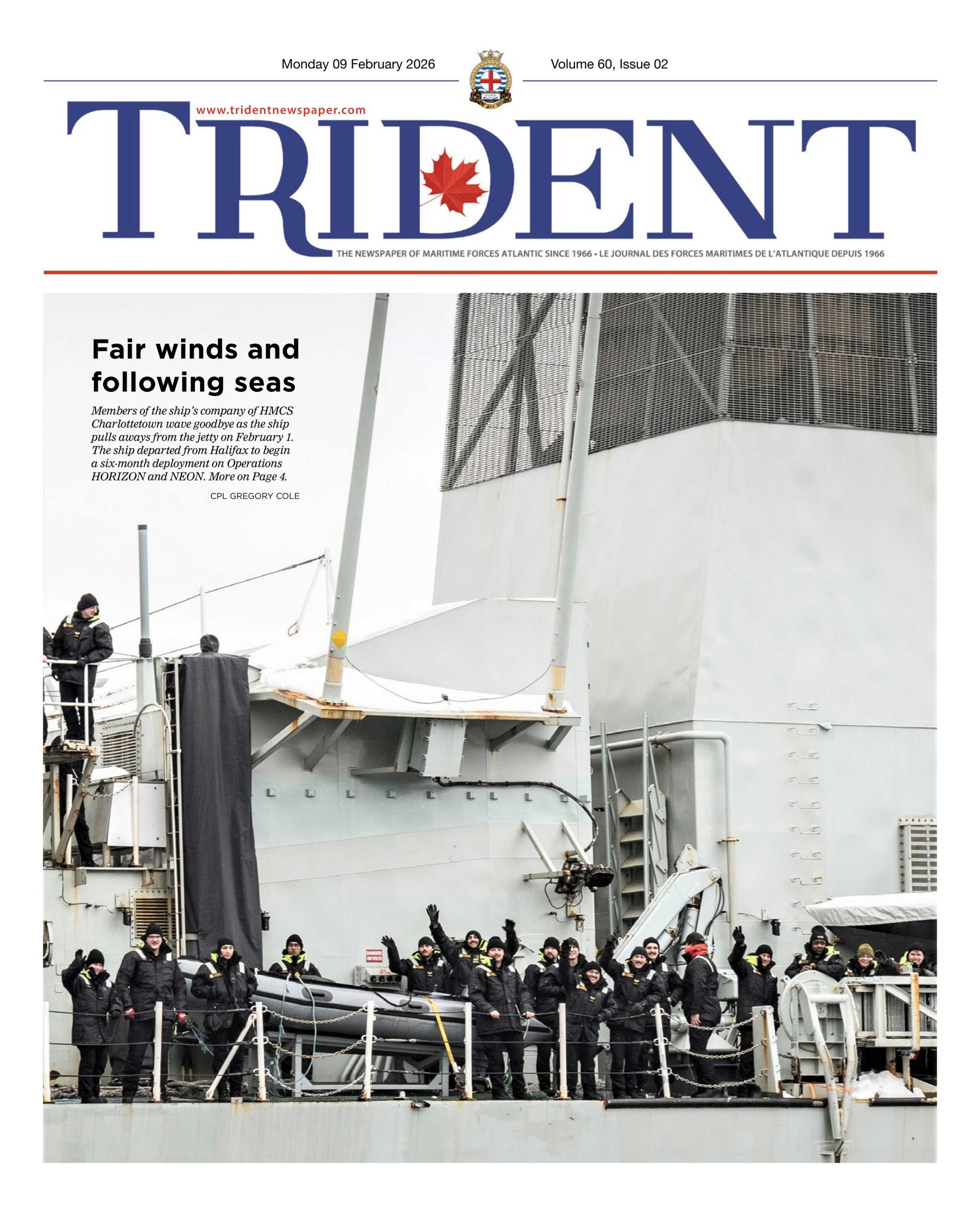
MS DANNY LAPLANTE
“Can you hear me now?” – NAV COMM RQS2 Training at NFSA
By MS Danny Laplante,
Naval Communicator Instructor, Naval Fleet School (Atlantic)

MS DANNY LAPLANTE
A unique training opportunity unfolded for seven students from the Naval Communicator (NAV COMM) Rank Qualification Sailor Second Class (RQS2) course in Halifax. Naval Fleet School (Atlantic) trialed a hands-on learning experience early within the overall NAV COMM training sequence of studies for the first time this summer. Traditionally, practical training occurs only after students have completed their initial NAV COMM training and are posted to a ship.
NAV COMM RQS2 is the first step in NAV COMM trades training once the sailor’s Basic Military Qualification (BMQ) and Naval Environmental Training (NETP) is complete. Having access to a ship this early in the NAV COMM program for hands-on training is unique and complements classroom lessons.
Students boarded HMCS St. John’s in the evenings while the vessel was alongside for a set of intensive training sessions during the final week of this 12.5-week course. The aim is to deepen trainees’ practical skills sooner rather than later by putting the theory behind voice and data communications to the test while also maximizing opportunities with the Fleet to enhance training efficiency through practise and familiarization.
Sailor Third Class (S3) Kylie McKenzie, a reservist from HMCS York, reflected on the value of this practical approach, stating, “It was a lot easier to understand the equipment when we could physically do the steps rather than trying to picture it after learning the theory.”
The decision to conduct the training in the evenings was made to avoid disrupting the daily operations of the HMCS St. John’s crew and to ensure safe transmission on High Frequency (HF) frequencies. Sessions were carefully designed to provide the students with hands-on experience in setting up, troubleshooting, and dismantling voice and data communication systems. Each student engaged in setting up Ultra High Frequency (UHF) and HF voice/data circuits and faced various troubleshooting scenarios posed by their instructors. A notable component of the training included connecting to the Halifax Naval Communication Station to test an HF Broadcast data circuit, an essential communication tool when satellite communications face interruptions.
“It was encouraging to witness the students’ increasing engagement and teamwork as we introduced system faults. The progression from the first to the last day in their problem-tracing skills was evident, and their growing confidence with the equipment was remarkable,” said Master Sailor (MS) Chris Nash, RQS2 instructor with Naval Fleet School Atlantic.
This hands-on experience has been invaluable for the students, bridging the gap between theoretical knowledge and practical application, and further enhances their readiness for real-world scenarios in communications when they finally do get the opportunity for sea time with the Fleet.
The plan is to continue these week-long practical training sessions on future RQS2 NAV COMM courses. Pursuing these practical opportunities allows the students to familiarize themselves with their future working environment once posted to a new unit. Furthermore, by training in the actual work environment, trainees will have a better understanding of the operational setup and execution of daily taskings, and responsibilities required for those at the RQS2 rank level.






